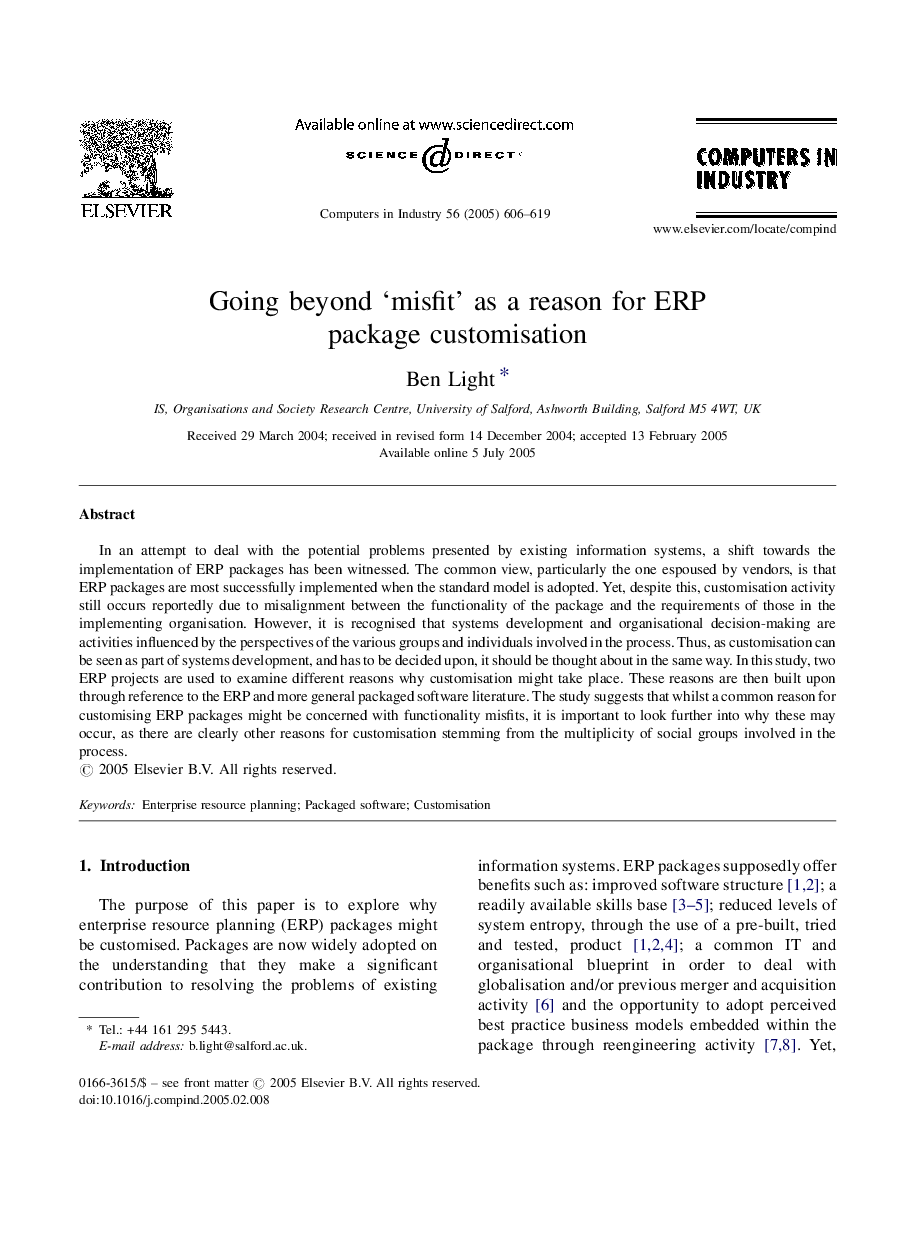| Article ID | Journal | Published Year | Pages | File Type |
|---|---|---|---|---|
| 10353300 | Computers in Industry | 2005 | 14 Pages |
Abstract
In an attempt to deal with the potential problems presented by existing information systems, a shift towards the implementation of ERP packages has been witnessed. The common view, particularly the one espoused by vendors, is that ERP packages are most successfully implemented when the standard model is adopted. Yet, despite this, customisation activity still occurs reportedly due to misalignment between the functionality of the package and the requirements of those in the implementing organisation. However, it is recognised that systems development and organisational decision-making are activities influenced by the perspectives of the various groups and individuals involved in the process. Thus, as customisation can be seen as part of systems development, and has to be decided upon, it should be thought about in the same way. In this study, two ERP projects are used to examine different reasons why customisation might take place. These reasons are then built upon through reference to the ERP and more general packaged software literature. The study suggests that whilst a common reason for customising ERP packages might be concerned with functionality misfits, it is important to look further into why these may occur, as there are clearly other reasons for customisation stemming from the multiplicity of social groups involved in the process.
Related Topics
Physical Sciences and Engineering
Computer Science
Computer Science Applications
Authors
Ben Light,
